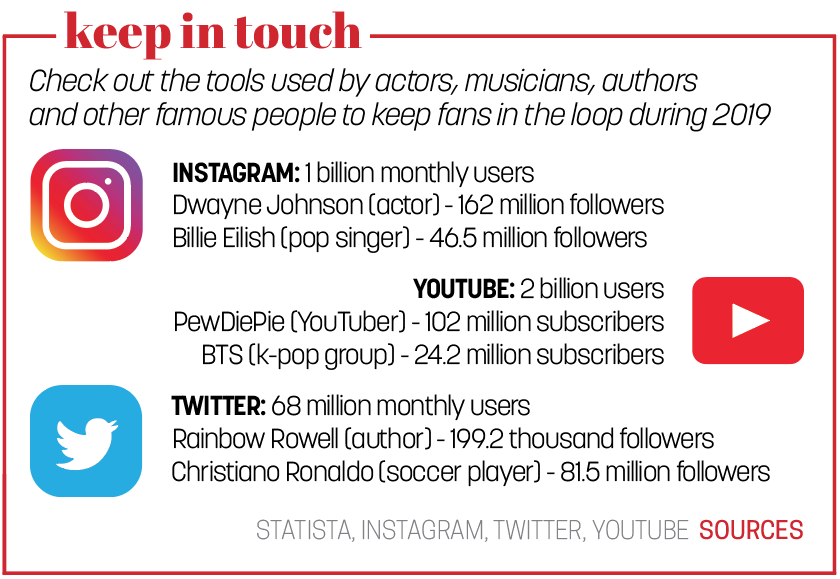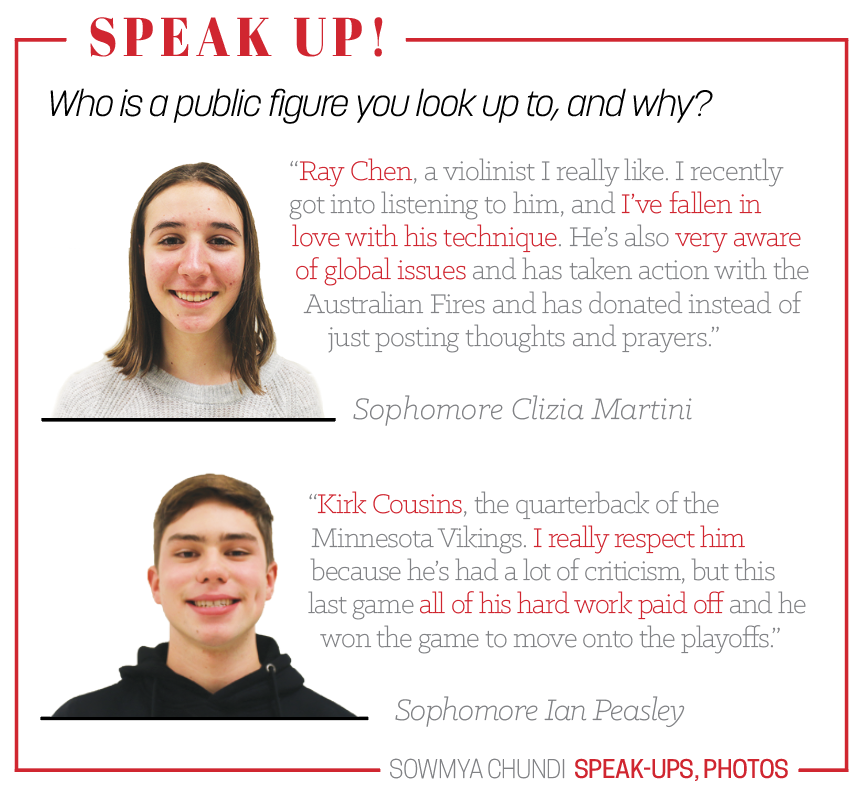Firearms and drugs were loaded on a private jet alongside SoundCloud rapper Juice WRLD on Dec. 7, 2019. The rapper’s actions—choosing to intake as much of the illegal substances as possible—led to his death later that night at 3 a.m. on Dec. 8, 2019.
Junior Piper Conway said she was heavily impacted by the rapper’s death. She said, “He died on a Sunday and I woke up later in the day and got up, did my normal routine until I looked at my phone, checked my social media and immediately saw the news about his death. I instantly started crying because he died at such a young age; (he was) literally four or five years older than me and he had such a big life ahead of him.”
Conway said she has looked up to Juice WRLD as a role model and idol since 2018 when his song “Lucid Dreams” became popular, and according to Saul Levine’s article “Our Illusions of Role Models, Heroes, and Idols” published in Psychology Today, having new idols throughout the developmental stages in life is normal.

Counselor Cary Schwartz said she agreed with this claim. “I think it’s human nature for us to idolize people because it starts out with them inspiring us,” she said. “When I was younger it was Michael Jackson. In my teenage years I loved a band called DC Talk, and now that I’m adulting, I really like authors who write from their own perspective or viewpoint.”
Despite the high points in both history teacher Allison Hargrove’s and Conway’s idols’ lives, they said those idols’ flaws leaned them away from the concept of perfection most idols are falsely claimed to have.
In fact, Hargrove said she idolizes Abraham Lincoln for when he began showing his flaws throughout his presidency. She said, “(Lincoln) tends to be placed on a pedestal—I’m the first to do this—but there’s something comforting in the fact that he was flawed and questioned his actions, just like we all do as human beings.”
Conway said for her, seeing those flaws for the first time—as in the case of Juice WRLD—was eye-opening. “Everyone isn’t perfect and some people have ways of coping with hard times in their life, and I imagine being a celebrity is hard. And (those celebrities) are more susceptible to things around them, such as drugs, and there is no one around them telling them otherwise.”
But while celebrities have flaws, often their flaws can affect not only their careers but also their audience. Schwartz said it’s important for people to recognize those traits.

Junior Piper Conway views Juice WRLD’s music and videos on her laptop. She said his death influenced her greatly because she has looked up to him and saw him as an inspiration. Juice WRLD was 20 years old when he passed away on Dec. 8, 2019 in Oak Lawn, Ill.
Schwartz said, “If there has to be a line (to differentiate positive and negative role models), it would be the human behind the idol, how they feel about being a role model. If a person is out there being selfish, indulging in things without caring about how it influences those who look up to them, that would be a negative idol. And a positive or healthy role model would be one who realizes that their actions are widespread and care about not only how people see them but also that their actions may be copy-catted by those who look up to them and that they want their followers to be good humans.”
Hargrove said she agreed with Schwartz, and said having Lincoln as her idol was a positive influence, especially as she learned more about him throughout her college years. As she learned about his flaws, she said, she eventually became even more enamored with him.

“I grew up going to Civil War battlefields during the summer. My love for history, and specifically the Civil War, grew because of this. However, when I was in college at Purdue University, I truly became immersed in learning about Lincoln as a leader who was not perfect,” she said. “I think the reason I love Lincoln so much is that he was bold when others hesitated; he recognized his election would most likely create a war, and he was willing to shoulder this burden. There are many misconceptions about Lincoln, one being that he was a passionate abolitionist. This simply is not true, at least not at the beginning of the war. However, this position shifts as the war continues, and this evolution fascinates me.”
Although idols can serve as positive influences, both Schwartz and Levine’s article warn that idolizing a public figure can be dangerous; rather, Schwartz said, respecting the public figure is a better approach to admiring him or her.
“I think that public figures inspire us and they influence us, but again I think that if you put all of your hope in one person you will be let down so sorely, so severely,” Schwartz said. “I want people to protect themselves against thinking in a way that that person is flawless or without issues. They probably have road rage sometimes, they probably have gone off at restaurants, they just aren’t perfect. We’re all human and we all make mistakes, but if we all have the idea that we’re all in this together then maybe this can be a happy little place to be.”


































![AI in films like "The Brutalist" is convenient, but shouldn’t take priority [opinion]](https://hilite.org/wp-content/uploads/2025/02/catherine-cover-1200x471.jpg)










































![Review: “The Immortal Soul Salvage Yard:” A criminally underrated poetry collection [MUSE]](https://hilite.org/wp-content/uploads/2025/03/71cju6TvqmL._AC_UF10001000_QL80_.jpg)
![Review: "Dog Man" is Unapologetically Chaotic [MUSE]](https://hilite.org/wp-content/uploads/2025/03/dogman-1200x700.jpg)
![Review: "Ne Zha 2": The WeChat family reunion I didn’t know I needed [MUSE]](https://hilite.org/wp-content/uploads/2025/03/unnamed-4.png)
![Review in Print: Maripaz Villar brings a delightfully unique style to the world of WEBTOON [MUSE]](https://hilite.org/wp-content/uploads/2023/12/maripazcover-1200x960.jpg)
![Review: “The Sword of Kaigen” is a masterpiece [MUSE]](https://hilite.org/wp-content/uploads/2023/11/Screenshot-2023-11-26-201051.png)
![Review: Gateron Oil Kings, great linear switches, okay price [MUSE]](https://hilite.org/wp-content/uploads/2023/11/Screenshot-2023-11-26-200553.png)
![Review: “A Haunting in Venice” is a significant improvement from other Agatha Christie adaptations [MUSE]](https://hilite.org/wp-content/uploads/2023/11/e7ee2938a6d422669771bce6d8088521.jpg)
![Review: A Thanksgiving story from elementary school, still just as interesting [MUSE]](https://hilite.org/wp-content/uploads/2023/11/Screenshot-2023-11-26-195514-987x1200.png)
![Review: "When I Fly Towards You", cute, uplifting youth drama [MUSE]](https://hilite.org/wp-content/uploads/2023/09/When-I-Fly-Towards-You-Chinese-drama.png)
![Postcards from Muse: Hawaii Travel Diary [MUSE]](https://hilite.org/wp-content/uploads/2023/09/My-project-1-1200x1200.jpg)
![Review: "Ladybug & Cat Noir: The Movie," departure from original show [MUSE]](https://hilite.org/wp-content/uploads/2023/09/Ladybug__Cat_Noir_-_The_Movie_poster.jpg)
![Review in Print: "Hidden Love" is the cute, uplifting drama everyone needs [MUSE]](https://hilite.org/wp-content/uploads/2023/09/hiddenlovecover-e1693597208225-1030x1200.png)
![Review in Print: "Heartstopper" is the heartwarming queer romance we all need [MUSE]](https://hilite.org/wp-content/uploads/2023/08/museheartstoppercover-1200x654.png)




